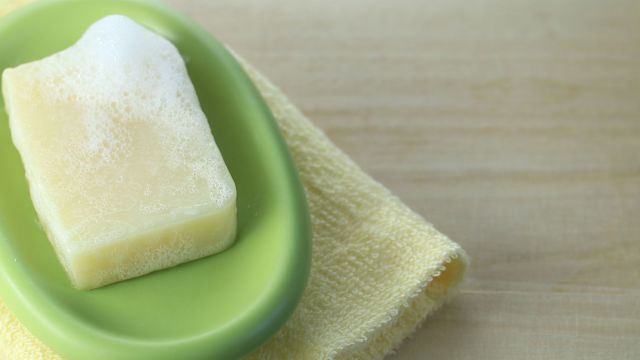Research has shown that a significant number of people with psoriasis may have genital psoriasis, which causes skin lesions on some of the most sensitive areas of the body. Genital psoriasis can look different than psoriasis in other parts of the body, and often manifests as something called inverse psoriasis. With inverse psoriasis, skin lesions are typically very red in color and have a smooth and shiny texture. Itching, pain, discomfort, scaling, stinging and burning are frequent symptoms.
If you have any type of psoriasis, it’s important to see a healthcare provider (HCP) to discuss your symptoms and get treatment. Additionally, the skincare tips below may help you control genital psoriasis symptoms and manage flare-ups. Some of these tips are specific to genital psoriasis, while others apply to psoriasis in general.
Use gentle skincare products
It’s important to choose soaps, body wash, shampoos and other skincare products that are gentle on the skin. Look for mild soaps that contain natural oils and fats. You’ll want to avoid antibacterial soaps and any product that contains fragrances, as these may irritate the skin and worsen symptoms.
Bathe with lukewarm water
Bathing is an important part of managing psoriasis. With plaque psoriasis, bathing can help soothe inflamed skin and soften skin that is scaled. With genital psoriasis, keeping the affected area clean can ease symptoms and help prevent fungal and yeast infections. Hot water can exacerbate dry skin and itching, so it’s best to keep baths and showers at a lukewarm temperature. Avoid scrubbing, which causes friction that can damage the skin. The same goes for toweling off—pat the skin dry instead of rubbing.
Moisturize
Anyone familiar with managing plaque psoriasis understands the importance of a good moisturizer. Keeping the skin moisturized can help ease itching and irritation and soften scaled psoriasis plaques. With genital psoriasis as well as inverse psoriasis on other areas of the body, keeping the affected skin moisturized helps reduce friction and chafing that make symptoms worse. Moisturizer should be applied immediately after bathing, and several times a day during cold or dry weather. As with soaps and cleansers, choose mild, fragrance-free products.
Use the right toilet paper
Genital psoriasis can affect the skin on and around the vagina, as well as the anus and the crease between the buttocks. And using some varieties of toilet paper can irritate the skin and worsen symptoms. You’ll want to choose quality toilet paper that is soft, but also be careful to avoid toilet paper that contains fragrances, dyes or other potential irritants. If you notice one brand aggravates your skin, switch to another.
Get enough fiber
As mentioned above, genital psoriasis can affect the skin on and around the anus, and pushing or straining during a bowel movement can cause this skin to tear. Getting adequate amounts of fiber helps things move more easily. If you need to, talk to your HCP about using a fiber supplement.
Avoid tight-fitting clothing
Tight-fitting clothing can rub or abrade the skin. Wear looser clothing whenever possible to cut down on the friction between fabric and your skin. For underwear, boxers or boyshorts may be a better option than briefs, bikini-style underwear or thongs that place elastic directly on folds of skin.
Work with your HCP
It bears repeating: If you have symptoms of genital psoriasis, seek treatment from an HCP. This could be your dermatologist or your primary care physician, who can refer you to a dermatologist. Though research suggests genital psoriasis is relatively common among people with psoriasis, it also shows that a significant number do not discuss their symptoms with an HCP. There are a number of treatments that can help get genital psoriasis symptoms under control and improve the appearance of the skin, and the first step to treating symptoms is talking to an HCP.





